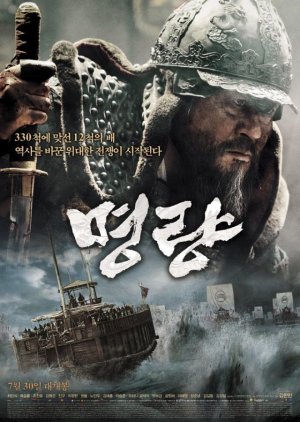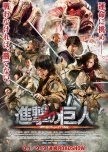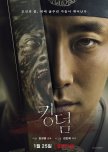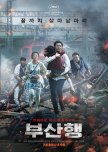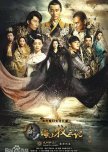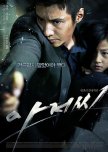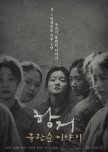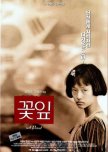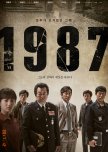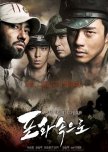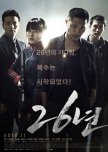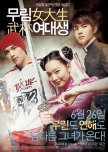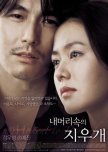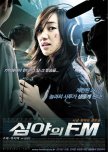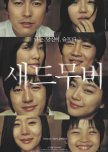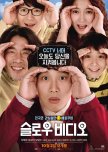Vond je deze recentie nuttig?

STORY:
I felt like the downfall of what could've been truly an epic, emotive film were these two things: a seriously mediocre script and melodrama overkill. So I get that filmgoers would have already known the story from history, and I get that in some ways the first half of the script's very sparse storytelling decisions were somewhat typical of this genre for a well-known historical event. But I thought the script was such a waste for the most part, and not only messed up the pacing of the first half, but kept us from being fully invested in compelling character roles.
Here we have in the historical story such complex and rich conflict...but in the film, it hardly plays out in an emotive or visceral way, except for Admiral Yi's inner conflict (which Choi Min Shik did an admirable job showing with very little to work with in the script) and the too-few scenes with Im Joon Young and his wife. No one else's character is remotely developed, and sure, 2 hours isn't a lot of time, but it's plenty. With better writing that first half could have been so compelling instead of dragging like it did. As a result I just didn't feel as much as I should have. The stakes were high, but the storytelling didn't let me actually feel with the characters, and the few that had the potential just weren't capitalized on.
The themes had a ton of potential too. I did like that it went a bit further beyond the typical "stand and fight never bow down" thing (which I do think epic Korean historical films are great at doing in emotive ways). There was that, and it was fascinating to wonder what the admiral would think of next or how he would solve his next impossible problem of doom rather than give in like everyone wanted him to. And on that front, there were some nice plays on typical Art of War strategy ideas. I always enjoy that in war movies, where there's a subtle debate over the philosophy of a particular one. But I thought so much more could have been done with those themes, and so many small relationships and overall plot points that were totally ripe for development. That was disappointing...and ultimately why even the cool plot turns were just cool and not emotionally satisfying.
Instead, there was wayyyyyy too much time spent on melodrama overkill. So Korea does melodrama oh so well and I realize my personal taste has a pretty wobbly line that gets easily crossed. So if your tolerance is way high or you're Korean and super patriotic, you may love what I did not. But I found myself continuously pushed out of the story by the way too loooong shots of Choi Min Shik staring all heroically into the camera or to the side or the way too long slo-mo scenes of battle that actually made some of the otherwise good fight choreography look distracting/ridiculous [e.g. watch soldier stunt man unconvincingly get his brain bashed out with the same move for like 30 seconds instead of 3]. I should note, however, that the battle scenes were for the most part really well done considering how tough it must have been to direct in the studio. Kim Han Min really excels with action scenes.
That said, his War of the Arrows is proof that incredible action/cinematography/direction coupled with good writing goes so much further (he also directed and wrote that script). I don't know for sure, but I'm wondering if more of the script was written by co-writer Jun Chul Hong who also wrote Kundo: Age of the Rampant...another film with tons of potential but similar script flaws.
ACTING:
I was really let down by the acting too. Choi Min Shik was totally the best person for the role of the grizzled leader pressed against the wall, and I was impressed with what Ryu Seung Rong did with his character (the badass enemy Kurushima), who didn't have any interesting dialog but whose presence totally seethed. Otani Ryohei had little interesting dialog too, but had great presence, as did a couple other secondary officers I didn't totally recognize. Jin Goo (the scout) was so good in his few scenes, and his character interesting enough that I was sad we didn't really know who he was in spite of the heroic role he ends up playing on numerous levels.
And while normally I'm not too bothered by Korean actors playing Japanese characters with horrible Japanese accents (especially when it's only a small part of the story), I did not get the choices made here. I mean, there was a ton of Japanese dialog, and there are quite a few excellent Korean actors who speak excellent Japanese. I don't get why they cast Kim Myung Gon in a role many others could've played when he sounded soooo bad it was totally hilarious...and even the actors who were well cast (like Ryu Seung Rong and Cho Jin Woong) are very proficient speakers, and big names, their still-not-convincing accents were pretty distracting...I don't understand why they couldn't at least dub some of the more sub-standard lines in post production like the Chinese do for less-than-fluent second-language speakers? I realize not everyone cares, but sheesh, with such a high budget and so much Japanese dialog, why not do it right?? I mean, this film had a release in Japan, after all.
OST:
As others have said, the epic OST was on point. SO good! Emotional without being too melodramatic, and dramatic without being exhausting...and a great theme. One you'd want to listen to over and over. If anyone knows who the composer is and what other film scores they've done, I'd like to know.
REWATCH:
The naval battle direction in the second half was pretty great and worth rewatching. And if you're not familiar with the story, it's also worth rewatching so you can actually get what's going on in the first half, which can be slightly confusing as there's very little character introduction or set up.
Vond je deze recentie nuttig?

